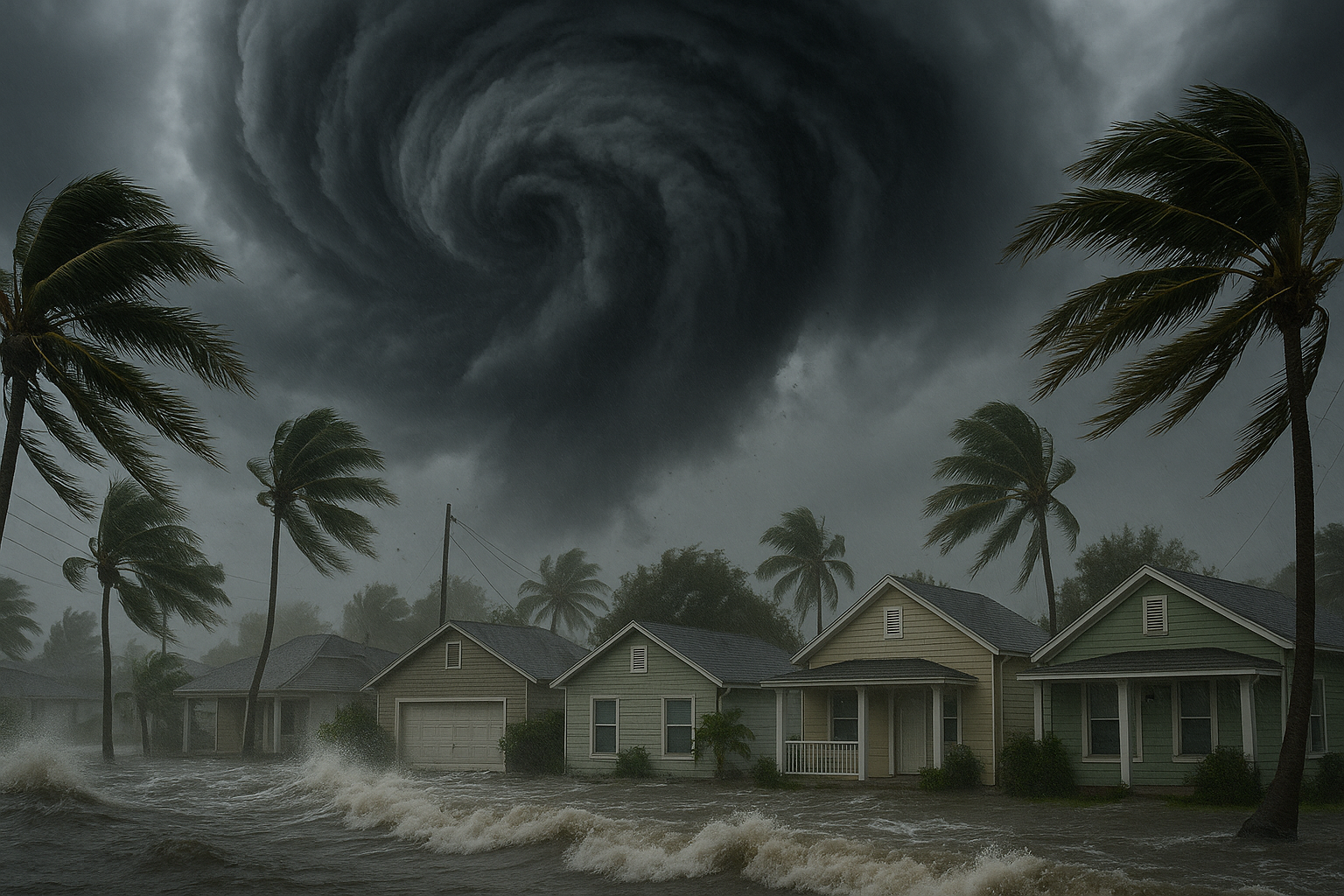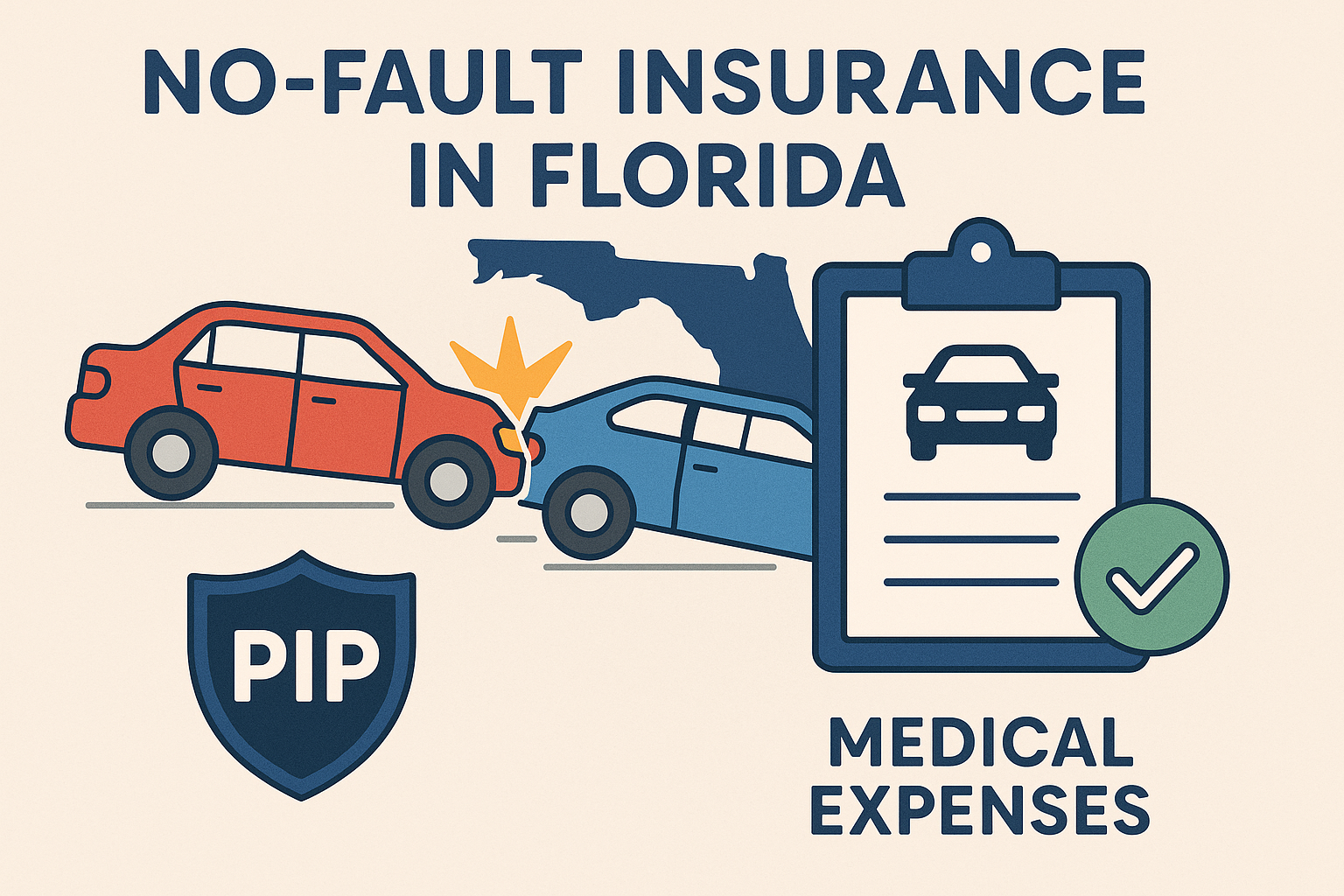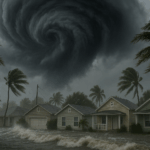Every year, Florida residents brace themselves for hurricane season. While many people worry about the safety of their loved ones, concerns about home and property damage quickly follow. Understanding if your insurance will protect you during a hurricane can offer peace of mind, so exploring your policy before a storm hits is vital. Not all insurance plans provide the same level of protection; therefore, knowing what your coverage includes is crucial. In the following article, you will learn what to expect from your insurance if a hurricane strikes your Florida home. By examining your coverage now, you can make confident decisions and stay prepared for the worst. Let’s look closer at hurricane insurance, policy types, exclusions, and how to navigate claims after a storm.
Understanding Hurricane Insurance Coverage in Florida
Florida’s unique geography makes it one of the most hurricane-prone states in the country. According to https://floridainsurancequotes.net/home-insurance/florida-hurricane-insurance-quotes/, insurance companies in Florida frequently offer specialized coverage for hurricane-related damage. Homeowners insurance generally covers certain types of wind and water damage; however, coverage for hurricanes is not always automatic. You should always review your policy carefully to understand how hurricane events are defined and what specific damages are covered. Many policies have a separate hurricane deductible, which means you pay a portion of the repair costs before your insurance pays the rest. Consequently, knowing your policy details before a storm can prevent surprises later.
Insurers in Florida often require separate deductibles for hurricanes, which are usually higher than standard deductibles. If the National Weather Service names a cyclone, your hurricane deductible will likely apply. Policies may differ in how they handle wind versus water damage, so it is crucial to read the fine print. For example, flood damage caused by rising water is not typically included in a standard homeowners policy. On the other hand, wind damage from a hurricane is often covered, but only after your deductible is met. Therefore, it is essential to understand what type of hurricane damage your policy addresses.
Additionally, if you live in a high-risk area, your mortgage lender might require you to carry certain types of hurricane insurance. Even if you are not required to have it, having the right coverage can help you recover faster after a major storm. Because Florida is so frequently affected by hurricanes, insurance providers routinely update their policies and requirements. Checking in with your insurer before hurricane season starts can help you avoid gaps in coverage. You may also want to inquire about coverage limits, exclusions, and the process for filing a claim, so you know exactly what to expect.
Key Types of Policies for Hurricane Protection
When you own a home in Florida, you have several types of insurance policies that can help protect you from hurricane damage. The most common is a standard homeowners insurance policy, which usually covers wind damage and damage from flying debris. However, you cannot rely solely on a homeowners policy, as it most often excludes flood damage. To protect yourself fully, consider purchasing a separate flood insurance policy as well. Flood insurance is typically offered through the National Flood Insurance Program, which covers damage caused by rising waters and storm surges.
Windstorm insurance is another type of policy that some Florida residents may need, especially those living in coastal areas. Not all homeowners policies include windstorm coverage, so you should check your policy and add it if necessary. In some cases, insurance companies exclude windstorm damage in high-risk zones, but you can often buy a separate windstorm policy from the state-run Citizens Property Insurance Corporation. Both flood and windstorm insurance work together with your homeowners insurance to offer more comprehensive hurricane protection.
Depending on your property and location, your insurance provider may suggest additional endorsements or riders. For example, you might need extra coverage for outbuildings, fences, or personal belongings. You should also review your coverage limits to ensure you have sufficient insurance to rebuild your home if it is destroyed. Because Florida’s insurance market is constantly evolving, it is wise to contact your agent for a coverage review annually. By understanding the various types of policies available, you can select the optimal combination of protections tailored to your specific needs.
Standard Exclusions and Limitations to Watch For
Even if you have homeowners insurance, several standard exclusions and limitations can leave you vulnerable after a hurricane. One of the biggest surprises for many homeowners is that a standard policy typically does not cover flood damage. Rising water from storm surge, overflowing rivers, or broken levees usually requires a separate flood insurance policy. If you only have homeowners insurance, you could find yourself paying for costly repairs out of pocket after a hurricane. Therefore, always ask your agent which types of water damage are covered and which are not.
Another significant limitation is the hurricane deductible, which typically ranges from 2% to 5% of your home’s insured value. If your home is insured for $300,000 and you have a 5% deductible, you would pay $15,000 before insurance covers the rest. Many homeowners do not realize how much they could owe until they file a claim. In addition to high deductibles, some policies exclude damage to certain types of property, such as fences, docks, or landscaping. These exclusions make it vital to read your policy carefully and ask questions before hurricane season arrives.
Some policies also place restrictions on claims if you do not take necessary precautions to prevent loss. For example, if you leave windows open or fail to secure your property, your insurer could deny your claim. In many cases, policies also limit coverage for temporary living expenses or additional structures on your property. Because exclusions and limits vary between insurance companies, reviewing your policy with an agent is the best way to understand your coverage. By knowing your policy’s finer details, you can avoid unpleasant surprises when you need help the most.
Filing a Claim After a Hurricane Hits Your Home
If a hurricane damages your home, filing a claim promptly and accurately is crucial for receiving assistance from your insurance company. You can begin by documenting all visible damage as soon as it is safe, using photos and videos if possible. Having a clear record of the destruction will support your claim and speed up the approval process with your insurer. Next, you’ll need to contact your insurance company to report the loss and ask about the next steps. Many companies have dedicated hotlines for hurricane claims, so utilize these resources to receive assistance more quickly. You may also need to provide a list of damaged or lost belongings to prove the extent of your loss.
While waiting for an insurance adjuster, take steps to prevent further damage to your property. For example, you can cover broken windows with plastic or secure a tarp over holes in your roof. Keeping receipts for these temporary repairs is important because many insurance policies reimburse you for them. However, do not start permanent repairs or throw away damaged items until an adjuster has inspected your property. Once your claim is filed, an adjuster will likely visit your home to assess the damage and determine how much your insurer will pay. Communicate openly with your insurance representative to avoid delays.
Throughout the claims process, staying organized and keeping detailed records will help you avoid confusion and ensure a smooth process. You should write down dates, names, and details of every conversation with your insurer. If you run into problems, do not hesitate to seek help from your state’s insurance regulator or a licensed public adjuster. Filing a hurricane claim can be stressful, but knowing the process before disaster strikes will make it easier. Working closely with your insurer and following their instructions will increase your chances of a smooth recovery after a storm.
Steps to Take Now to Prepare for Hurricane Season
Preparing for hurricane season in Florida begins with reviewing your insurance coverage each year. You’ll need to meet with your insurance agent to review your current policy and make any necessary updates. Ask questions about your deductibles, coverage limits, and exclusions, so you know exactly what protection you have. If you live in a flood-prone area, make sure you have an active flood insurance policy because standard homeowners insurance seldom covers flooding. Checking your coverage now can save you from financial hardship in the future.
In addition to updating your insurance, create a home inventory of your valuables and important belongings. This list will help you quickly document losses if you need to file a claim after a hurricane—store copies of important documents, such as insurance policies, in a safe and accessible place. You should also make digital backups so you can access them if your home is damaged. Keeping emergency supplies, such as bottled water, nonperishable food, and first aid kits, will help you stay safe during and after the storm.
Taking steps to protect your property can also make a big difference during hurricane season. Trim trees and secure outdoor items to minimize damage from high winds. Install storm shutters or board up windows before a hurricane approaches. If you rent, discuss your responsibilities with your landlord and ensure you have renters insurance. Finally, I’d like you to please stay informed about weather alerts in your area and follow evacuation orders if necessary. By preparing ahead of time, you can reduce stress and increase your chances of a quick recovery.
Conclusion
Protecting your Florida home from hurricanes requires more than just hope; it demands careful preparation and a solid understanding of your insurance coverage. Because hurricane risks are so prevalent in Florida, insurance companies tailor their policies to address wind and water damage; yet, essential gaps may remain. By reviewing your policy, asking questions, and considering flood or windstorm coverage, you can strengthen your financial safety net. Many homeowners are surprised by high deductibles, excluded damages, and the need for separate flood insurance. Preparing for hurricane season means not only updating your policy but also creating a home inventory and securing your property against storms. After a hurricane hits, acting quickly to document damage and file a claim can make a big difference in your recovery. Staying in close contact with your insurance company and keeping detailed records will help resolve your claim efficiently. If you ever encounter challenges, seeking help from a professional can provide valuable support. Ultimately, knowing your insurance options and taking proactive steps will allow you to face hurricane season with greater confidence. By being prepared, you can protect your family, your home, and your peace of mind, no matter what the Florida weather brings.




